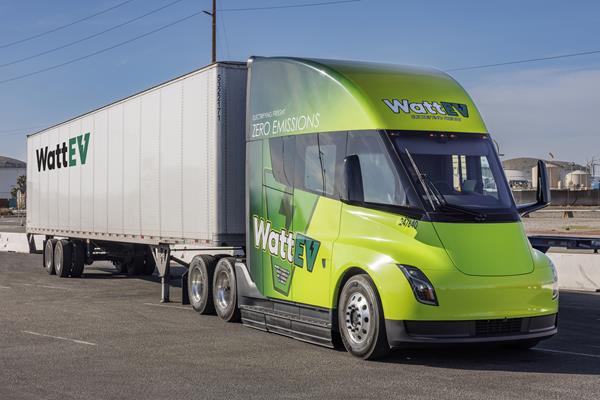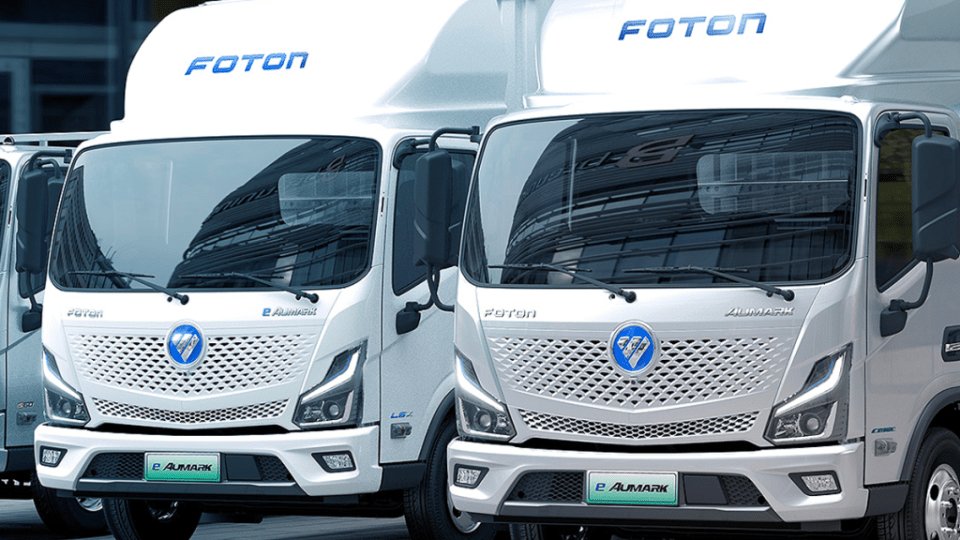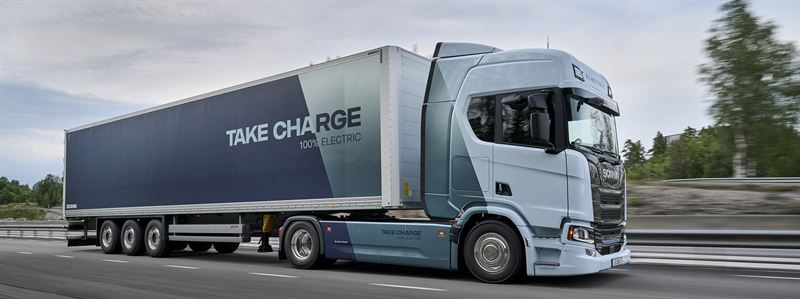Five Renault Trucks D and D Wide electric trucks in charge of Coca-Cola last mile deliveries in Belgium
Coca-Cola Europacific Partners (CCEP) will start using 30 Renault Trucks D and D Wide electric trucks to make last mile deliveries to local customers in Belgium. Through a key partnership with Renault Trucks, the beverage manufacturer is electrifying one-fifth of its truck fleet and creating the largest fleet of electric trucks in the European countries.
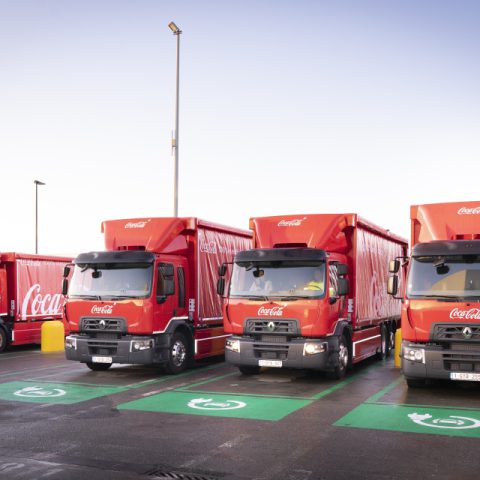
Coca-Cola Europacific Partners (CCEP) will start using 30 Renault Trucks D and D Wide electric trucks to make last mile deliveries to local customers in Belgium. Through a key partnership with Renault Trucks, the beverage manufacturer is electrifying one-fifth of its truck fleet and creating the largest fleet of electric trucks in the European countries. Only yesterday, Renault Trucks unveiled the design of its brand-new heavy-duty electric trucks.
Renault Trucks E-Tech vehicles for Coca-Cola
Back to the collaboration with Coca-Cola, the first five Renault Trucks E-tech D and D Wide will go out in the Antwerp area in these days, and other trucks will arrive in the coming months at the manufacturing and distribution sites in Ghent and Chaudfontaine. “Our industry is facing difficulties that require rapid adaptation, but we are also firmly committed to maintaining a long-term approach. Investing in electric trucks will allow Coca-Cola Europacific Partners to cut CO2 emissions by 30% across the entire value chain by 2030 and become climate neutral by 2040,” commented An Vermeulen, VP & Country Director of Coca-Cola Europacific Partners for Belgium and Luxembourg.
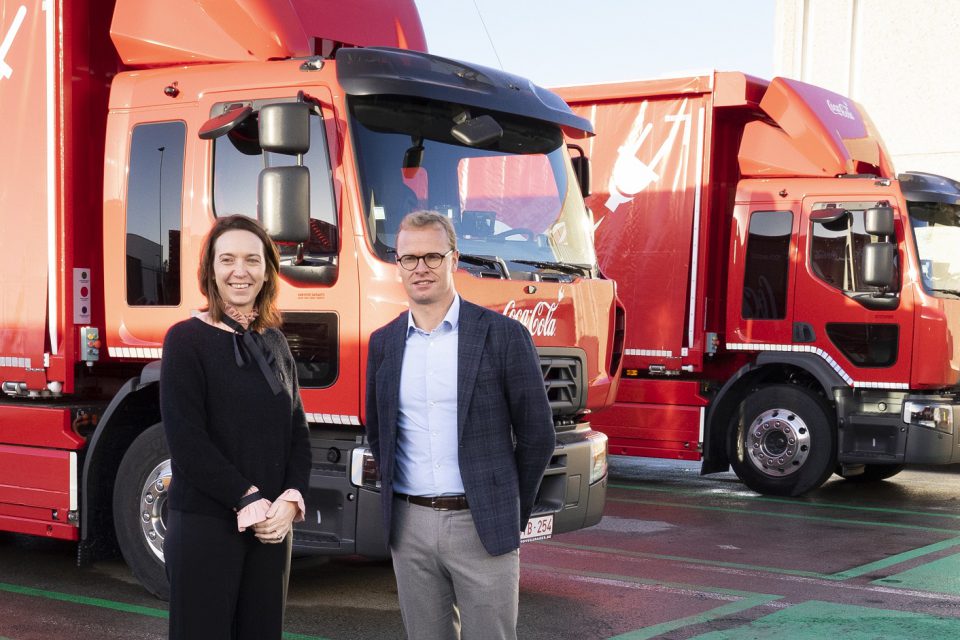
Coca-Cola chose a configuration allowing Renault Truck’s electric vehicles to cover 200 km daily,
which is more than enough for 40% of CCEP’s current local delivery routes. Each truck has an on-site charging station to fully recharge the battery overnight. These charging stations are powered by
100% green energy generated at the site.
Tests carried out to analyse energy consumption
“We carefully analysed Coca-Cola’s logistics data, produced realistic route simulations, and carried out tests under real conditions that looked at energy consumption as well as driver comfort and safety,” explained Siegfried Van Brabandt, Managing Director of Renault Trucks Belux. “The trucks are also equipped with 360° camera systems to eliminate blind spots, a loudspeaker to warn pedestrians and cyclists, and a clear door for optimal visibility on the passenger side.”
The 30 electric trucks being rolled out this year are just a first step for CCEP. “We will keep taking steps to decarbonise our fleet until 2030 while continuing to study market developments to determine the future of our fleets by considering parameters such as covering longer distances, vehicle autonomy, and heavier loads,” added An Vermeulen.










